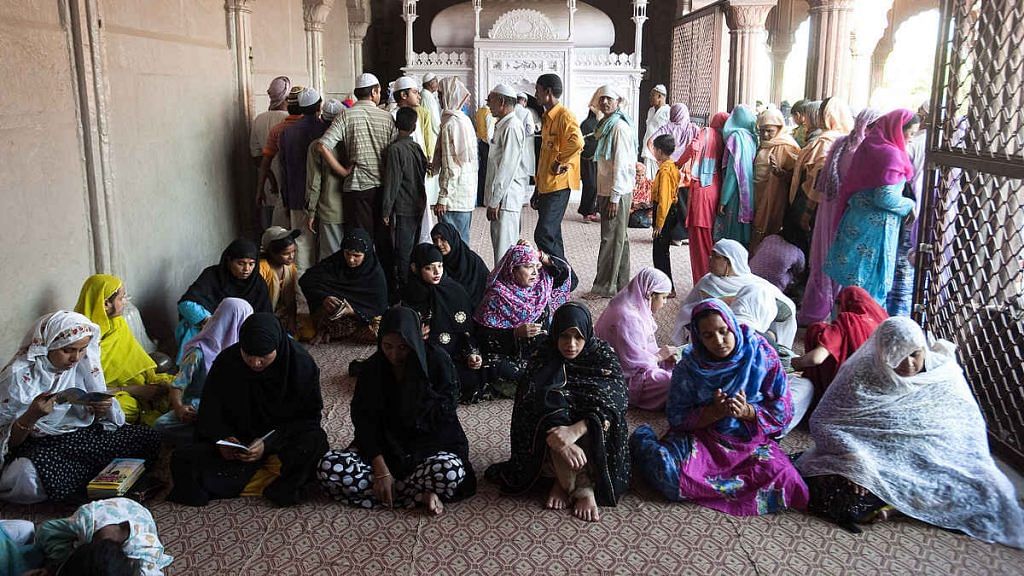New Delhi: The Supreme Court Tuesday admitted a plea filed by a Pune couple to lift a ban on the entry of Muslim women in mosques. But the fact is that Islam does not mandate any ban on their entry into any mosque in the world.
A member of the All India Muslim Personal Law Board (AIMPLB), who did not wish to be named, told ThePrint: “No mosque across the world prohibits any women — Muslim or a non-Muslim — from entering. Then where does the question of lifting a ban arise?”
What the petitioners want
The petitioners have sought directions from the Supreme Court to the AIMPLB, the Waqf Council, the National Commission for Women and the Ministry of Minority Affairs to allow Muslim women to enter mosques and offer prayers without segregation.
The subject of the petition is “Permitting the petitioner and female Muslims to enter mosque and offer their prayer and appropriate writ order or orders or directions for setting aside the alleged fatwa/directions of Imams which is in violation of article 14, 15, 25, 29 and Directive Principles of the Constitution of India.”
The petitioners have also sought permission for women to pray in mosques without being separated by a barrier. They have also argued for women to be allowed to stand in front, and in mixed-gender congregational lines.
Also read: SC invokes Sabarimala in plea seeking entry of women into mosques
Status in Islamic law
Islam doesn’t prohibit women from offering prayers with men in mosques. Instead, the AIMPLB member said, it directs women — whether at home or in a mosque — to stand in a separate row, some distance behind men. In some mosques, separate areas are built for women to offer prayers.
“The only limitation is that women are not supposed to offer namaz while standing shoulder-to-shoulder with men, either at a mosque or at home. It has nothing to do with giving less respect to women,” he said.
Ashraf Usmani, spokesperson for Darul Uloom Deoband, echoed the AIMPLB member’s words.
“It’s not right to say there’s a ban on the entry of women, because there is no prohibition. It may be ‘disliked’ by a few mosque authorities, but women are not barred,” Usmani said.
Also read: Hijab not simply about religion, Muslim women wear it for several reasons
